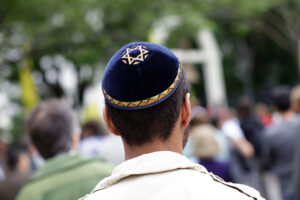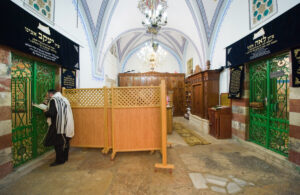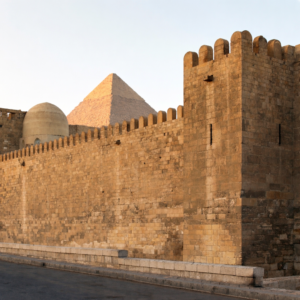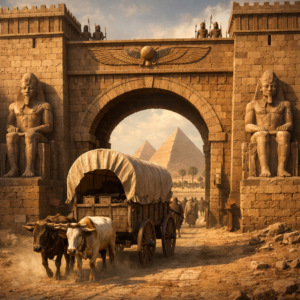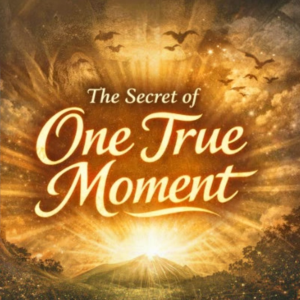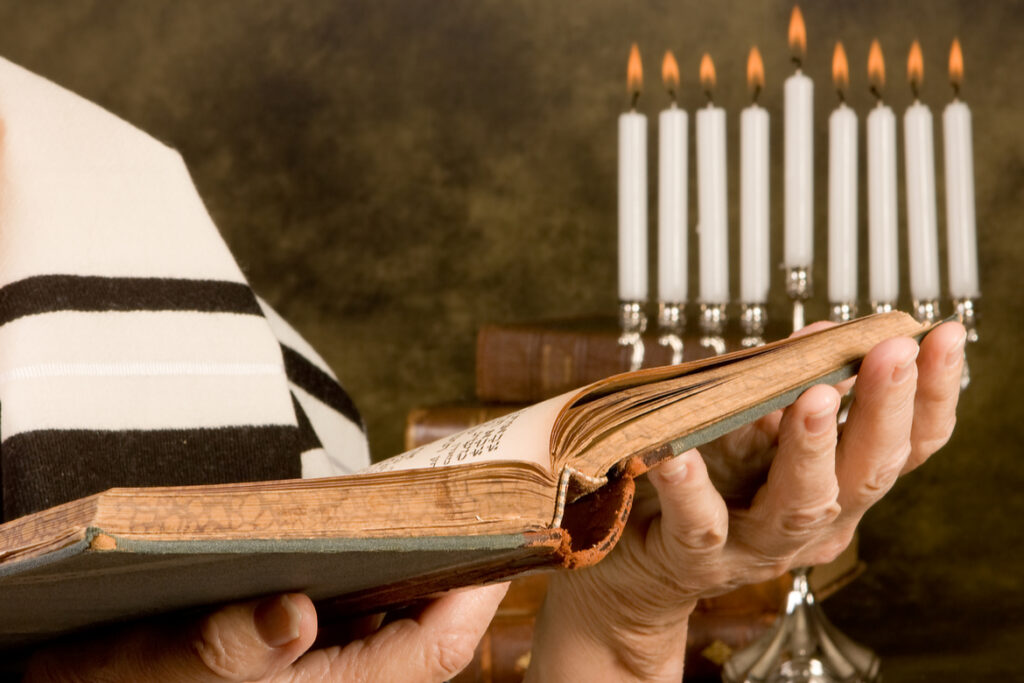- Faith ⬦ Read ⬦ Shabbat ⬦ Weekly Torah Portion
Believe. Hurry up. Remember – Parshat Bo
Zerizut, the ability to do things quickly, is a very good trait. It is very different from the trait of pezizut, recklessness, where a person does something without thinking about it. Zerizut, on the other hand, symbolizes faith in G-d and corresponds to the power of memory. The Torah describes the Exodus from Egypt as being with chipazon (hasty) and zerizut (quickness), and commands us to remember the Exodus, because speed and remembrance go together…
This week’s Torah portion is parshat “Bo.” After G-d struck Pharaoh with the tenth plague which was the “plague of the firstborn,” Pharaoh gave in and begged the Jews to leave Egypt that very night. Moses refused, saying that we would not leave like thieves in the night. Only the next day, at midday, the Nation of Israel left Egypt proudly and upright as free men, as the Torah writes: “And the children of Israel went out triumphantly,” and as Rashi explains: “Courageously and publicly” (Exodus 14:8).
The Torah describes the Exodus of the Jews as an exit which was so hasty that they didn’t even have time to take provisions for the journey: “They baked the dough that they had taken out of Egypt into cakes of matzah, since it had not risen. They were driven out of Egypt and weren’t able to delay, and they had not prepared any other provisions for themselves” (Exodus 12:39).
Rabbi Natan gives over a wonderful teaching:
The Nation of Israel had absolute faith in G-d, and they did not prepare any provisions. This is why they went out in haste, for haste symbolizes faith as we shall soon see. The matzah (“cakes of matzah, since it had not risen”) that they took out of Egypt, symbolizes faith, that is, the knowledge of faith in Divine Providence. Because, in fact, the pinnacle of knowledge, the highest level of knowing, is when one merits recognizing the Creator and knowing that everything occurs only under the supervision of the Creator.
The haste that the Torah speaks of when they came out of Egypt is the haste spoken about in the Passover Haggadah: “which teaches that HaKadosh Baruch Hu skipped over the end.” Practically this means that the Nation of Israel was supposed to be enslaved in Egypt for 400 years, but HaKadosh Baruch Hu counted it from the birth of Isaac, and this is how He skipped over the end. And this is also the reason for the haste that took place during the Exodus from Egypt. In just a few moments, about 600,000 people gathered from the entire land of Egypt and came to Rameses and then went to Sukkot. This was a supernatural leap, above time, as the Torah writes: “I carried you on eagles’ wings and brought you to Me” (Exodus 19:4). That is, the Holy One, Blessed be He, raised the Nation of Israel beyond the dimension of time, beyond the limits of nature, so that they would be able to leave hurriedly, in a flash.
This means that it was the belief in Divine Providence that enabled them to leave Egypt, because also the Nation of Israel’s haste, having left Egypt without chametz, without food, was through the power of faith in the Creator. This is how they were able to leave Egypt unbound from the constraints of time and enslavement. Why does chipazon (haste) symbolize faith? The reason is that haste is associated with the trait of zerizut (being able to do something quickly) which is the symbol of faith. (Of course, it does not refer to pezizut, recklessness, which is a negative trait.) As Rabbi Nachman explains: “Faith is the aspect of zerizut (alacrity) because when a person has faith, he is able to overcome the trait of laziness and all obstacles and is thereby able to encourage himself to serve G-d with zerizut (Likutei Moharan 155).
The Holy One, Blessed be He, raised the Nation of Israel beyond the dimension of time, beyond the limits of nature, so that they would be able to leave hurriedly, in a flash!
That is why the Torah mentions so often the fact that we must remember the Exodus as it is written: “Remember this day that you came out of Egypt” (Exodus 13:3), and as it is written: “For you shall remember the day you came out of the land of Egypt all the days of your life,” (Deuteronomy 16), etc. Remembering is also related to faith, as there is no forgetting before His Throne of Glory because the Creator is above time. Only in the dimension of time is forgetting possible, for when something is eternal, forgetting cannot exist, and HaKadosh Baruch Hu, Who is Eternal, has no connection with forgetting (Likutei Moharan I, 7).

The Torah commands us to remember the Exodus from Egypt because it showed that the world operates only according to His Divine Providence and supervision!
Therefore, the Torah commands us to remember the Exodus from Egypt because it was during the Exodus that the power of the Creator was revealed. It showed that the world operates only according to His Divine Providence and supervision. He can turn water into blood, and blood into water, and so too with all the miracles that were done during the Exodus from Egypt. All this hints at remembrance, which is above nature, at Eternal supervision which is above the dimension of time. At this point we can connect everything together: the chipazon (haste) with which they left Egypt is identified with the remembrance, which is above nature. And the chipazon, which is the trait of zerizut (speed and agility), is what enlivens the mind to the fact that everything is under the providence of the Creator.
Therefore, the “matzah” which is a symbol of faith is identified with chipazon, as in the verse: “they had not prepared any other provisions for themselves.” Rashi brings from the Midrash: “[This verse] tells [of] Israel’s praise, [namely] that they did not say, ‘How will we go out into the desert without provisions?’ Instead, they believed and left. This is what is explained explicitly in the Kabbalah regarding the verse: “I remember to you the loving kindness of your youth, the love of your nuptials, your following Me in the desert, in a land not sown’” (Jeremiah 2:2).
(Based on Likutei Halachot, Netilat Yadayim 2:6)
- bobreslevBreslovChametzdivine providenceDvar Torah for Parshat Boexodus from EgyptfaithfeaturedForgettinggo above mazalgood traithastyJewishJewish spiritualityjudaismLikutey HalachotLikutey MoharanMatzahNation of IsraelParshat Bopesach haggadahpezizutquicklyReb NosonRebbe Nachmanrecklessnessremembranceten plaguesThrone of GloryTorah’s commandmentsTzaddikzerizut
- 0 comment




